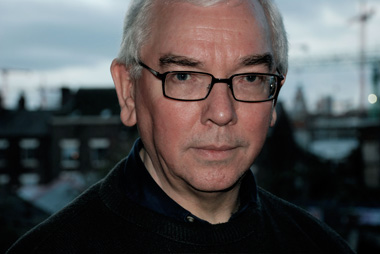Set The Terence Davies Trilogy
Children
| director: | Terence Davies |
| screenplay: | Terence Davies |
| cinematography: | William Diver |
| cast: | Philip Mawdsley, Nick Stringer, Val Lilley, Robin Hooper |
| producer: | Geoffrey Evans |
| production: | British Film Institute |
| sales: | British Film Institute |
| awards: | IFF Locarno 1984 - nagroda jury ekumenicznego / Ecumenical Jury Prize |
| language: | English |
Death and Transfiguration
| director: | Terence Davies |
| screenplay: | Terence Davies |
| cinematography: | William Diver |
| cast: | Terry O'Sullivan, Wilfred Brambell, Iain Munro, Jeanne Doree |
| producer: | Claire Barwell |
| production: | Greater London Arts, British Film Institute |
| sales: | British Film Institute |
| awards: | IFF Locarno 1984 - nagroda jury ekumenicznego / Ecumenical Jury Prize |
| language: | English |
The Terence Davies Trilogybegins his extraordinary output, initiating themes and techniques that recur in this Brit's work from then on. The Trilogy is a feature self-portrait divided into three parts. Robert Tucker, the director's alter ego, experiences a passionate conflict between his religious sense of guilt and homosexual desires. Suffering and humiliation is submerged in the present and past, which both have equal rights in The Trilogy. Tucker's path is not a road to redemption, it is a road to death. The film is also an impressive, intimate confession and an aesthetical triumph, unmatched by any other autobiographical film.
Michał Oleszczyk
This film doesn't say: look, I've suffered so much. This film proves that even someone devastated can triumph through their art.
Geoff Andrew, Time Out
Madonna and Child,
| director: | Terence Davies |
| screenplay: | Terence Davies |
| cinematography: | William Diver |
| cast: | Terry O'Sullivan, Sheila Raynor, Paul Barber, John Meynall |
| producer: | Mike Maloney |
| production: | National Film School |
| sales: | British Film Institute |
| awards: | IFF Locarno 1984 - nagroda jury ekumenicznego / Ecumenical Jury Prize |
| language: | English |

Terence Davies was born in 1945, in Liverpool, and was the youngest child among ten siblings in a poor working class, Catholic family of Irish origins (three of the children died prematurely). His childhood was affected by the violence of his sadistic father and the rascals from the gymnasium, who – according to Davies’ words – intimidated and punched him every day for the whole four years. After his father’s death, the director-to-be developed a very intimate relationships with his family, which – together with the cinema discovered at the age of seven and the ever-present Catholic religion – became for him an escape and refuge from the unfriendly, external reality. Discovering his homosexuality resulted in an internal conflict and inexpressible feeling of guilt in the boy.
After finishing his education, fifteen-year-old Terence started to work as a clerk in a port office; he soon changed the office for another one; and this was like a curse for him for many of the next years. The hatred for office work was so overwhelming that in the evenings Davies tried his hand at literature and participated in amateur theatre workshops. Before the age of thirty, he managed to get into a drama school, which he attended for 2 years. In 1972, the British Film Institute gave eight thousand, five hundred pounds (this was quite a big amount) for shooting of the scenario of Children – the film which became Davies’ directorial debut and was finally premiered in 1976. After completing his acting education, and one unsuccessful attempt to be admitted to the studies in film direction, Davies finally managed to get into the National Film School in London. During the next years – up to 1992 – the director was creating his autobiographical cycle, and then he made (until today) only two feature films, which were adaptations of somebody else's texts: The Neon Bible (1994), based on a novel by John Kennedy Toole, and The House of Mirth (2000), based on Edith Wharton’s novel bearing the same title. During this year’s Cannes festival, his first documentary - Of Time and the City (2008), about his home city of Liverpool – was presented.
